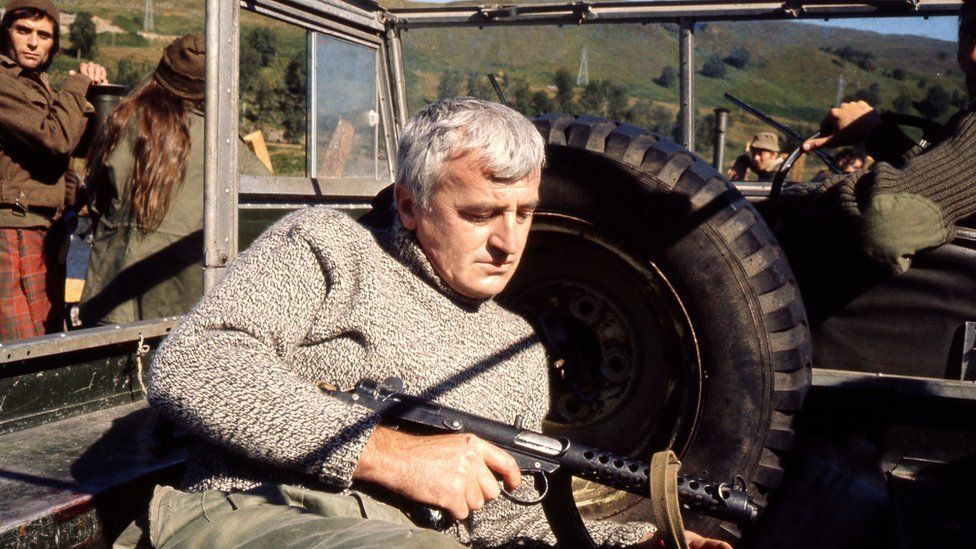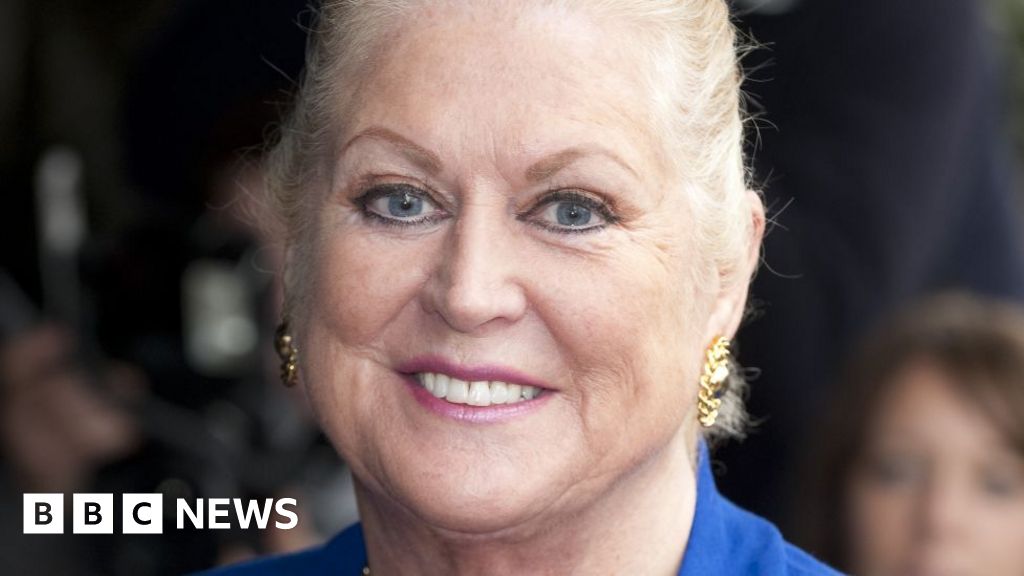ARTICLE AD BOX

Bill Simpson as the undercover bomb expert MacNair
By Craig Williams
BBC Scotland
It sounds like the most dramatic news story imaginable.
The battle for Scottish independence has taken a violent turn after paramilitary "soldiers" of the Scottish Liberation Army (SLA) took over the town of Fort William.
Troops from English regiments of the British army are massing north of Glasgow to turn back an expected assault on the nation's largest city.
The prime minister is meeting his cabinet in London.
And the leadership of the SNP, the party which recently narrowly missed out on winning a majority in the Westminster parliament, has yet to condemn the actions in the Highlands.
This is not real life. It was what BBC Scotland programme makers imagined could happen back in 1973, in one of the most controversial episodes in the corporation's 100-year history north of the border.
The drama series they created has never been shown since.
Image source, Getty Images
Image caption,Co-author Douglas Hurd would go on to serve in Margaret Thatcher and John Major's cabinets
It started in the minds of two English writers, one of whom would become best known as Margaret Thatcher's home secretary.
Douglas Hurd was one of bright young things of the Conservative Party when he wrote a trilogy of novels in the late 1960s.
He had been a diplomat but by the time his third novel, Scotch on the Rocks, was turned into a BBC drama in 1973, he was working for the Conservatives and on the cusp of entering parliament.
The TV adaptation was a complex and violent political thriller told over five parts.
It was made at a time when BBC Scotland was hoping to produce more high-budget, high-profile drama for the whole of the BBC network.
Chris Kaye worked on Scotch on the Rocks
Chris Kaye, now 75 and retired after decades producing and directing television, was a young assistant to the programme's director at the time. He says it was the best thing he ever worked on.
"It was a fabulous Scottish director who had come from Granada especially to do this. It was a challenging exercise because it was a network show, one of our first all colour series.
"It had a good budget and we had the best actors we could afford," he said.
One of the cast was then 23-year-old Alex Norton, now a star of film and television, including Taggart and Two Doors Down.
"I remember there was some problem with us blowing up a statue. We were going to blow up a statue of Queen Victoria and at the last minute the council wouldn't allow it so we blew up some guy on a horse instead," he said.
"I was in a couple of scenes. One was when they creep up on somebody's car and I was to throw a brick through the window. It was a bit away and it took about three or four goes and I lobbed the brick and dented the panel work.
"Eventually, the cameraman said maybe we could throw the car at the brick and rewind the film."
Alex Norton played a Glasgow gang member
Despite these challenges the production, which included filming battles on the streets of Fort William, went well.
It was shown in the spring of 1973 and audience figures and reviews were generally good. The BBC's Board of Governors praised the adaptation.
But there was trouble brewing behind the scenes.
The programme had come along at a politically turbulent time.
The SNP had won a Westminster seat in 1967 and the party was doing well in opinion polls.
This had helped push the Conservatives under Ted Heath into committing to a Scottish assembly.
However by 1973 his government had been struggling with industrial disputes and British troops were on the streets in Northern Ireland.
The actor Maurice Roeves played a Glasgow gang leader
The SNP's leader, Gordon Wilson, had called for the programme to be shelved ahead of transmission. That was rejected but almost as soon as Scotch on the Rocks hit the nation's screens pressure began mounting on those involved in the programme.
"It got quite vociferous and rather sadly it really started to detract from the success of the performances because everyone had raved about how exciting it was," said Chris Kaye.
"For us it was a year and a half's work with brilliant actors and actresses and an awful lot of effort."
After transmission, the SNP's formal complaint was upheld by the BBC's Programmes Complaints Commission (PCC).
They agreed the use of the Scottish National Party name and logo in the drama created the risk that viewers might think the real SNP was involved in violence and that this constituted "unfair treatment".
As a result the programme has never been shown again.
The final page of the BBC complaints adjudication, upholding the SNP's complaint
Among those watching in 1973 was Michael Russell, current president of the SNP and former culture secretary in the Scottish government.
He does not believe people mistook it for a documentary and believes the programme ultimately did more good than harm.
"What it did do was to wake up the idea that there was something happening in Scotland that was to do with Scotland as a nation," he said.
"People were writing fiction about the nation and quite a lot of people like me would think that this was really interesting. There's something here that we haven't thought about.
"When I look back on it I think what happened was it raised the consciousness in a curious way," he added.
A 'historical curiosity'
Alex Norton was sad the programme disappeared.
"I was disappointed certainly because I never got a repeat fee, which is always a good thing.
"I was aware it was controversial but I just thought that was all to the good. The more controversial the better," he said.
Chris Kaye has long hoped it will be shown again.
"It would be such a pleasure to sit down and see it once again. I looked at the clip that you get on Youtube, which lasts one and a half minutes and it's just like yesterday."
John Cairney as the SNP politician John Mackie, who joins the armed rebellion
Luke McCullough, BBC Scotland's head of corporate affairs, said: "Scotch on the Rocks was an iconic piece of TV drama made here in Scotland, but was never repeated following its original transmission due to the complaint being upheld about a key plot point in the first episode.
"With the passage of time, it's not impossible that the BBC could consider showing it again, with careful handling of material covered by the historic complaint - but with two of the five episodes currently missing from the BBC archive, a repeat remains unlikely.
"If anyone still retains a copy of the missing two episodes, the BBC archive would be very happy to hear from them."
The ideas Scotch on the Rocks deals with are far from irrelevant but 50 years later could it be shown again without provoking yet more controversy?
Michael Russell thinks so.
"I would love to see it again. I suspect it is rather dated. I suspect the production values have dated but it is a historical curiosity," he said.
Alex Norton agrees. "I would really like to see it shown again," he said.
"There is no reason why they shouldn't. That was then, this is now. Do people really think it would do any harm?"

 1 year ago
38
1 year ago
38








 English (US) ·
English (US) ·